"Imagine a therapy that had no known side effects, was readily available, and could improve your cognitive functioning at zero cost." That was the attention-grabbing opening to an academic paper written by US researchers over a decade ago. The therapy in question? Spending time in nature. But we could clearly do with a reminder – according to a new study conducted by One Poll for beauty brand Liz Earle, 50 per cent of us haven’t walked in the countryside or even visited a park in the last six months, and one in ten of us only manage 5 minutes or less outside a day. In fact, another study estimates that on average we now spend 22 hours a day – which over a lifetime equates to more than 75 years – indoors.
In an age in which you can do everything from your weekly shop to managing your finances from your sofa, it’s not surprising that we’re becoming such indoor creatures. But with new evidence that spending time in nature reduces stress, fatigue, anxiety and depression, as well as boosting immunity and even anti-cancer proteins, perhaps we need to get out in the green…
Wild thing
A host of scientific studies now confirm what we’ve probably always instinctively known (if only Netflix weren’t such an alluring distraction): nature is good for our mental, emotional and even physical wellbeing. One study from Japan found that spending time in the forest reduced levels of the stress hormone cortisol by 12.4 per cent. Another from the University of Michigan found that short term memory improved by 20 per cent after taking a walk among trees. And it wasn’t just the exercise that sharpened the mind – subjects who were sent for a walk down a busy city street didn’t get the same improvement. So what is it about being immersed in nature that allows our minds to unwind and reboot? Experts theorise that nature allows us to replenish our psychological ‘batteries’ by encouraging us to use a different form of attention. ‘We have a limited capacity to focus our attention on the completion of complex tasks,’ explains Dr Stephanie Wilkie, environmental psychologist at the University of Sunderland. ‘This type of attention is referred to as directed attention and it gets depleted the more you use it.’ Anything that requires you to concentrate and block out unwanted stimuli demands directed attention – whether that’s navigating busy streets on your commute, or writing a report in a noisy office. ‘Nature, on the other hand, evokes a different kind of attention called involuntary attention,’ says Dr Wilkie. ‘This is what you use when you notice something interesting on a walk, or are listening to the birdsong or looking at the flowers and trees. You don’t really need to concentrate, it just effortlessly engages your interest, and this gives your directed attention a chance to ‘rest up’ and replenish.’ In fact, so powerful is nature’s effect on the mind, we’re starting to see the emergence of what Dr Wilkie terms ‘nature prescriptions’ to help treat depression and anxiety.
Natural high
So how long do you need to spend outdoors to reap the rewards? At the moment there’s no official guideline equivalent to, say, getting your 5-a-day of fruit and veg, but new research suggests a two hour dose of nature a week significantly boosts health and wellbeing. It doesn’t matter whether you spend those two hours in one go or in short bursts throughout the week, and you don’t have to head to the Cotswolds to get the benefits. ‘Even spending time in a small urban park can bring rapid improvements to mood, fatigue, stress and concentration,’ says Dr Wilkie. That said, there is some evidence that the biodiversity makes a difference and that spending time in an area of outstanding natural beauty is even more effective in reducing stress.
To build more outdoor time into your week, start small, advises Hana Sutch, co-founder of Go Jauntly, a free community-based walking app, designed to help city dwellers connect with the nature around them. ‘Reclaim your lunchtime and go for a walk in the park, or beat the afternoon slump by having walking meetings with colleagues. Then at the weekend, plan an outside adventure with friends – you can use Go Jauntly to find walks further afield and make a day of it.’ Rather than plugging into a podcast, try one of the walks Go Jauntly has created with Liz Earle, which feature audio guides from their ethnobotanist James Wong, who points out plants and flowers along the way.
Into the woods
Swapping your gym membership for one of the new breed of outdoor classes makes a lot of sense. ‘Exercising in nature has been reported by participants in a range of trials to feel easier than gym sessions, despite often burning more calories,’ says Wong. ‘Plus, evidence has shown that exercise in green spaces results in an overall better mood than the same run looking at the flashing lights of a treadmill.’ But you don’t have to do a work-out to benefit from nature’s healing powers. Research into the Japanese practise of ‘shinrin-yoku’, or ‘forest bathing’ – essentially a short, leisurely visit to a forest – suggests that all sorts of psychophysiological benefits can be gained just from spending time in a natural setting. As well as reducing stress, improving mood and encouraging creativity, spending time in the forest has even been shown to boost your immune system. This is because trees and plants emit ‘phytoncides’ which we breathe in when spending time in the woods. These have been proven to enhance the activity of natural ‘killer cells’ that help our bodies to fight disease. So forget bubble baths and scented candles – if you’re run down and running on empty, forest bathing is the way to go.
Down to earth
While we can all get behind the idea of a woodland walk, a slightly wackier-sounding practise – ‘earthing’ – is becoming the next big thing in wellness. Also known as ‘grounding,’ earthing involves standing or walking barefoot in order to benefit from the earth’s electrical charge. All a bit woo-woo? Actually no – research has shown that barefoot contact with the earth can help improve sleep, lower stress, and reduce pain and muscle tension. ‘When your bare feet come into contact with the earth, free electrons from the earth’s negatively-charged surface are taken up into the body,’ says Jenya Di Pierro, naturopath and founder of chic London wellness club, Cloud Twelve (cloudtwelve.co.uk). ‘These electrons are effectively nature’s biggest antioxidants and help neutralise damaging excess free radicals that can lead to inflammation and disease.’ Advocates of earthing point out that we evolved in direct contact with the Earth’s electric charge, but in modern life, we’ve lost that connection. ‘Throughout history, humans walked, sat and slept on the ground, so they spent a lot of their time naturally ‘grounded’. But today we have become increasingly disconnected from the earth – conductive, leather-soled shoes have been replaced with insulated rubber and plastics. Carpets, synthetic fabrics, asphalt, tar, and vinyl all block the earth’s natural charge too. In addition, we are bathed in a sea of man-made electronic radiation from household appliances, mobile phones, wi-fi, microwaves and cell towers, which continuously bombard us with free-radical damage to our tissues and cells. The Earth’s energy helps neutralise this, so that your body can heal and repair naturally, as it is meant to.’ Experts recommend earthing daily if possible – just stand, walk or lie on any kind of grass, earth or sand for 30 minutes. If you don’t have that long, it’s still worth doing though, says Jenya. ‘If you think of an electrical appliance in the event of a short circuit, it can be grounded in milliseconds, so I think any time spent barefoot will benefit the body.’ Time to kick off your heels, then.
SHOP: If you want to recreate the calm of the outdoors inside, try one of these stress-relieving beauty buys:
SHOP: The Best Stress Relievers On The Market
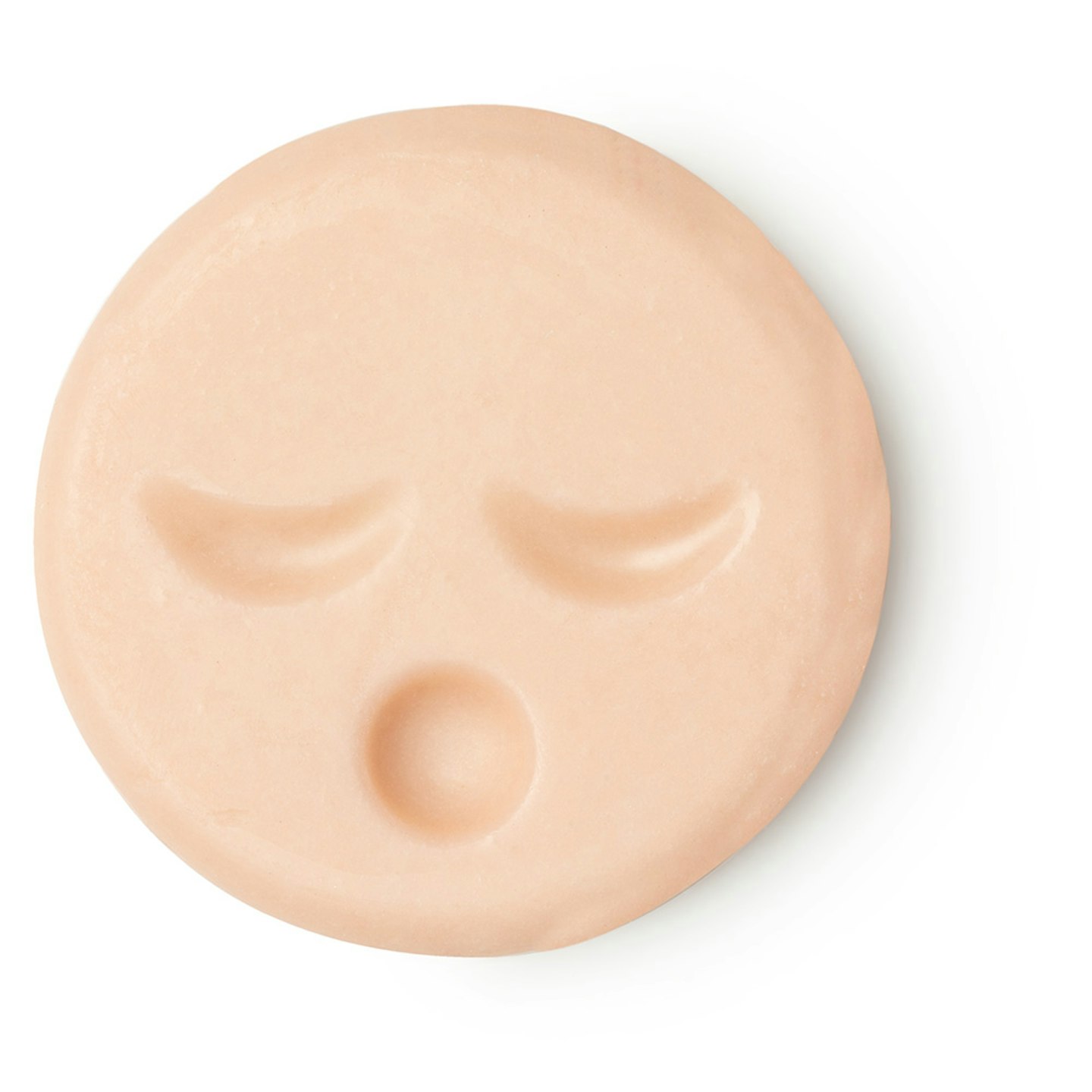 1 of 11
1 of 11Lush’s Sleepy Face Naked Cleansing Balm, £4.95
The fair-trade cocoa butter and French lavender infused in this fast-acting balm prep your mind and skin for a night of undisturbed relaxation. It's also part of Lush's new 'Naked' range, which foregoes any plastic packaging.
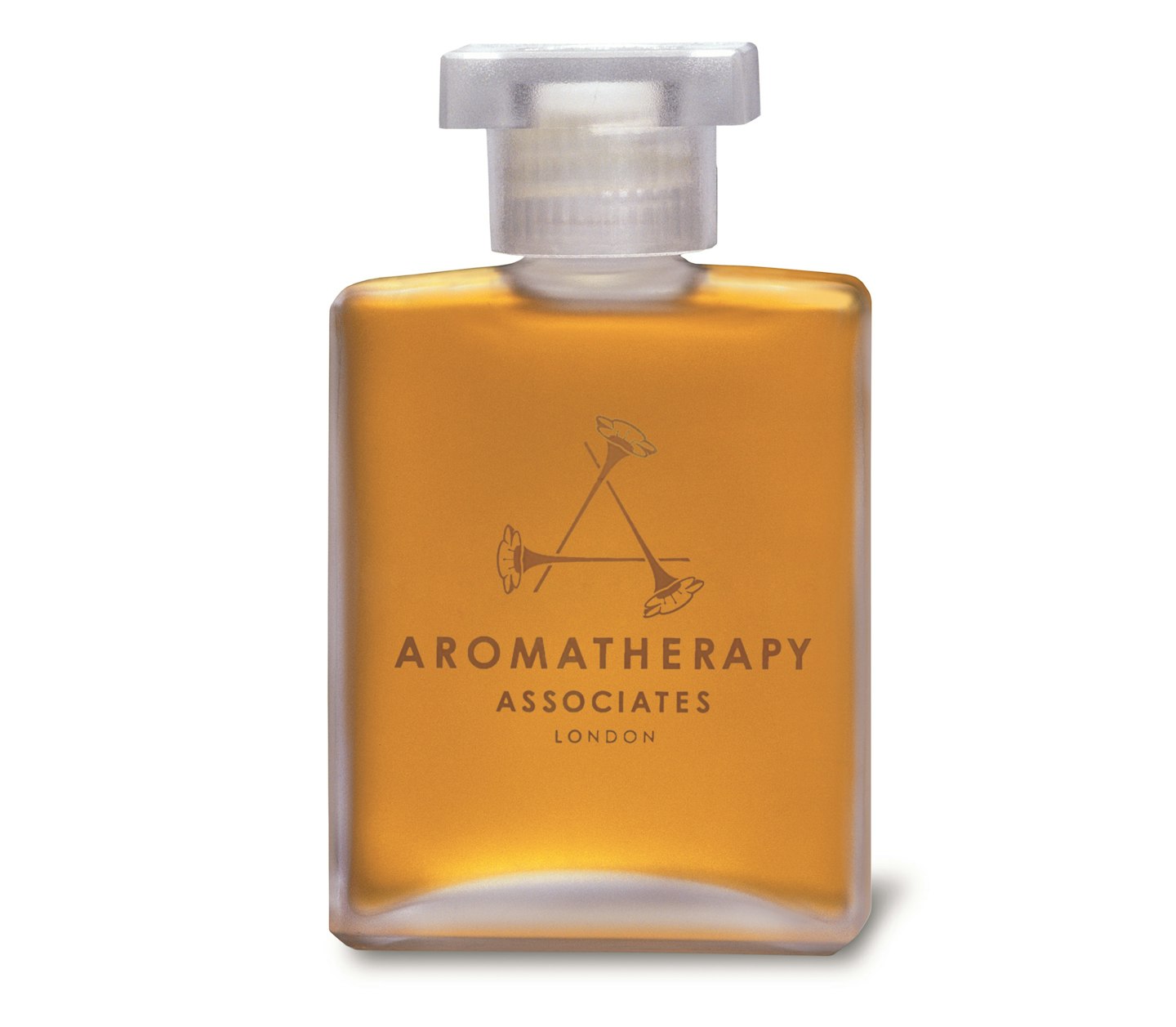 2 of 11
2 of 11Aromatherapy Associates Deep Relax Bath & Shower Oil, £49
By using a curated selection of natural ingredients, Aromatherapy Associates' oils are not only effective in soothing worries and stresses but can be used in a host of versatile ways - splash into your bath water, massage directly onto skin or apply straight to your pulse points.
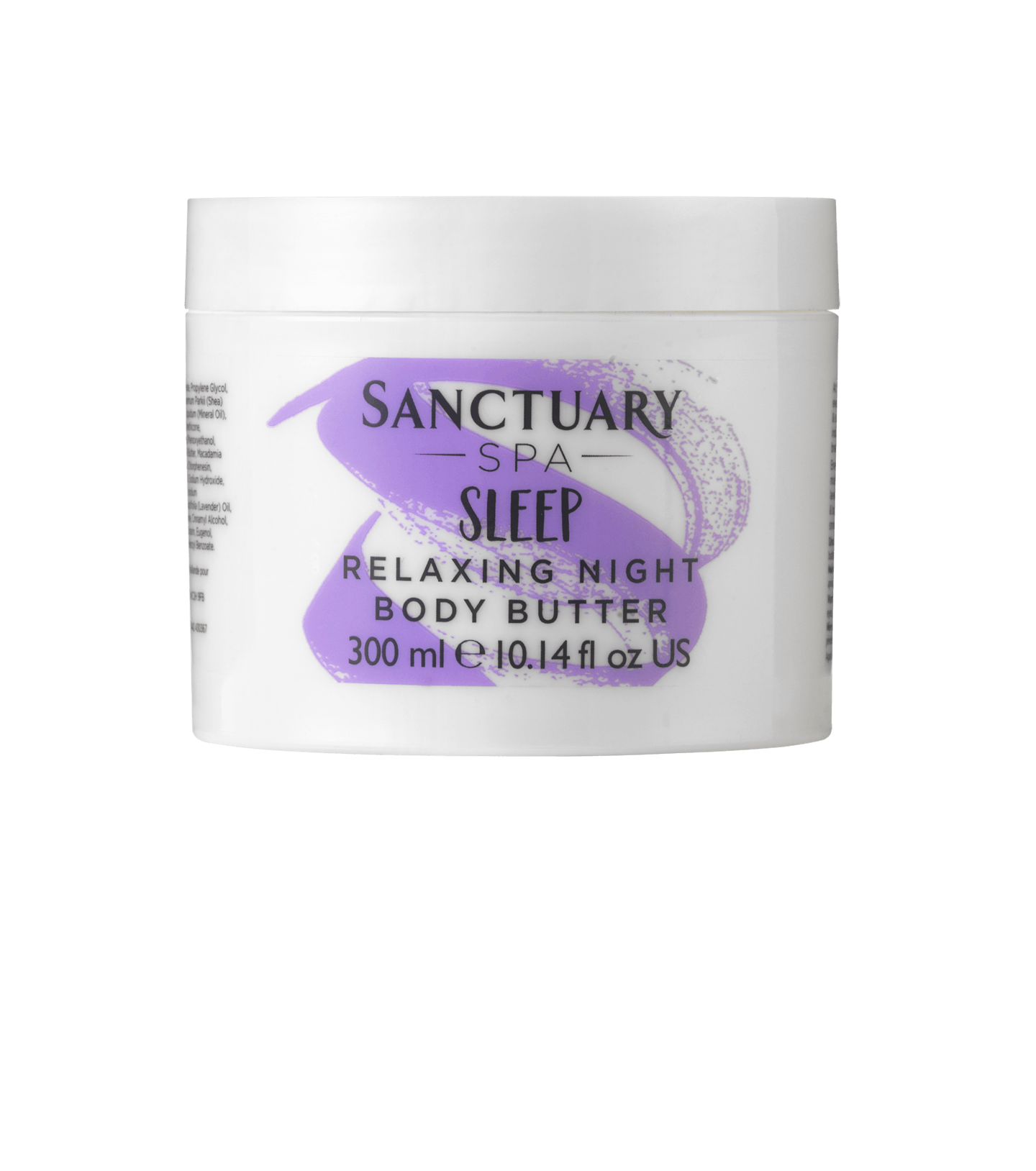 3 of 11
3 of 11Sanctuary Spa Sleep Relaxing Night Body Butter, £11
Before hitting the hay, let this smooth body butter melt into your skin. The exotic combination of jasmine, ylang-ylang, sweet almond and lavender get to work on while you're on an express flight to the land of nod.
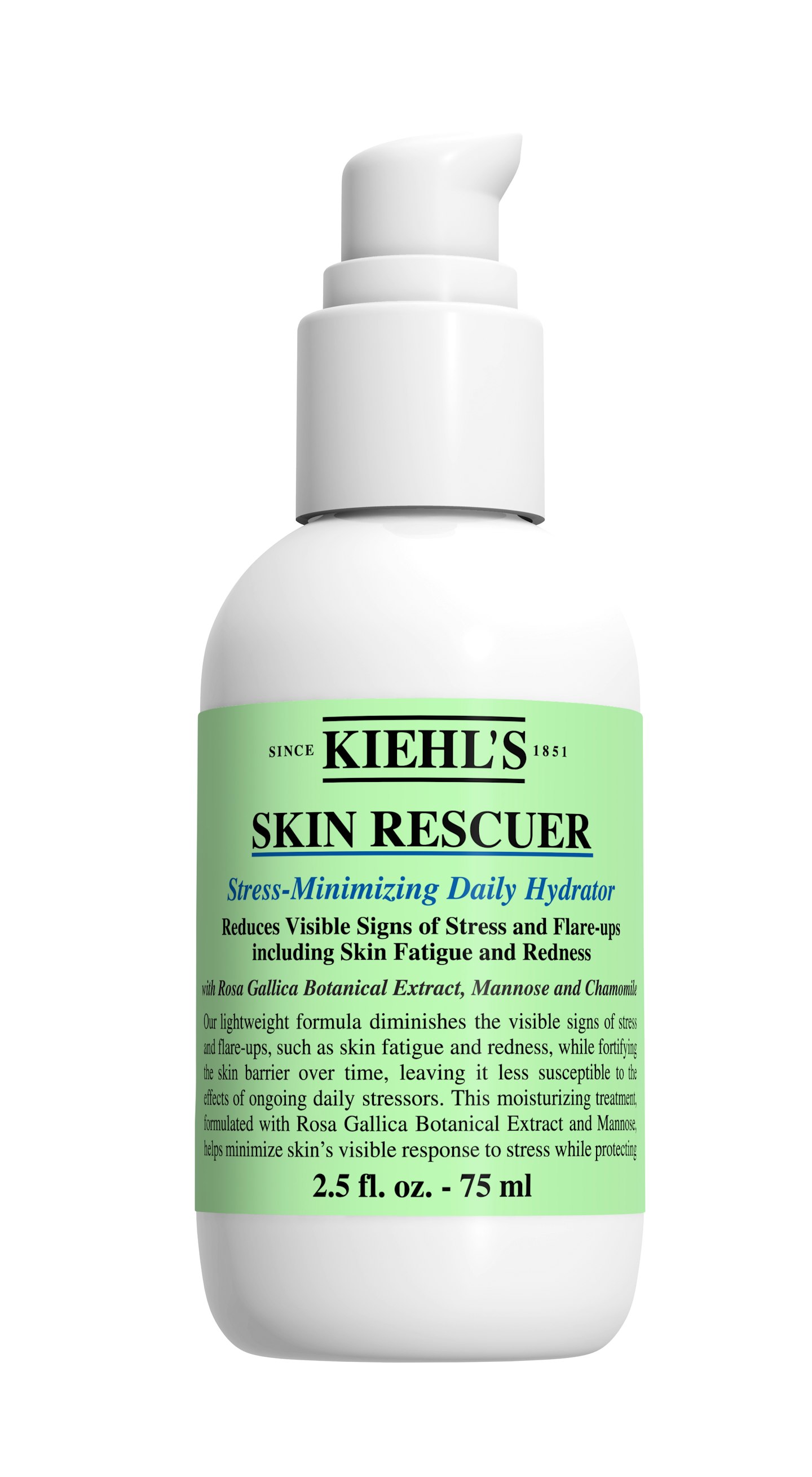 4 of 11
4 of 11Kiehl’s Skin Rescuer, £29.50
A daily hydrator like this one from Kiehl's not only gives a quick burst of moisture to stressed-out skin, but strengthens the skin's barrier with its protective chamomile properties. A handy one to have in your handbag.
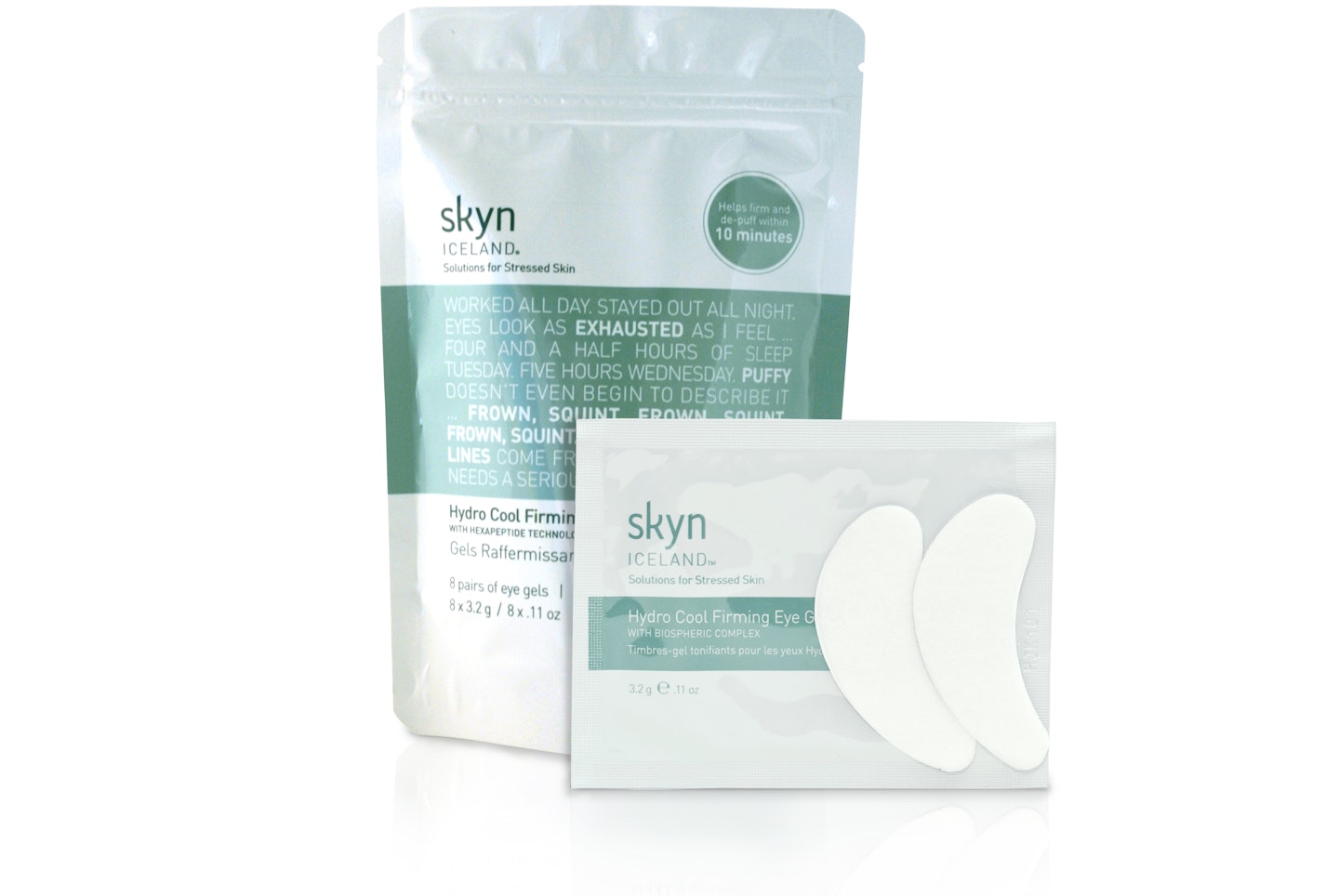 5 of 11
5 of 11Hydro Cool Firming Eye Gel, £25
This promises to de-puff the area under your eyes, which can often suffer thanks to lack of sleep or extra stress. More than that, though, it just feels lovely and cooling. Put some on as you have a lovely, relaxing bath (or just watch Netflix from your sofa).
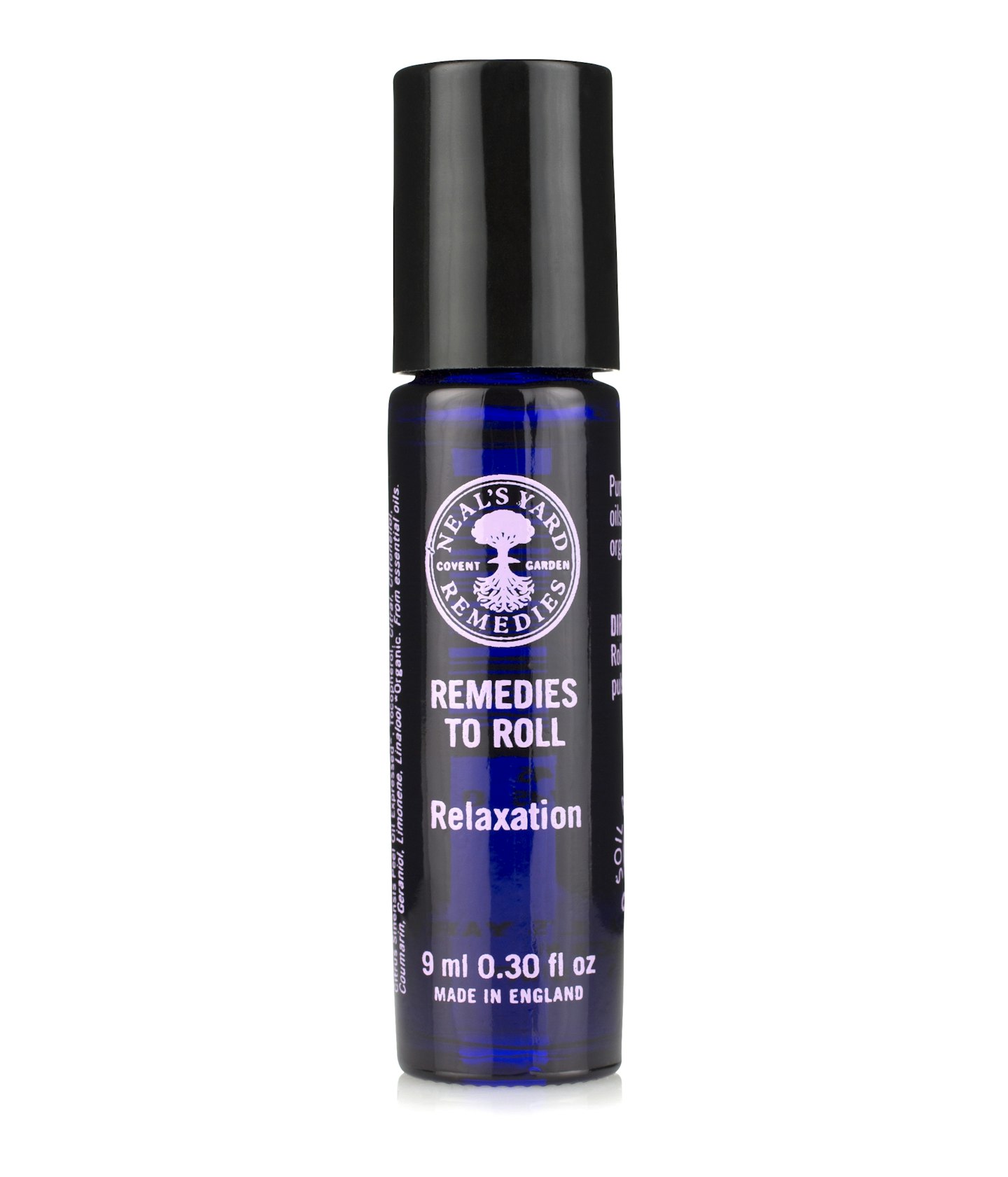 6 of 11
6 of 11Neal’s Yard Remedies to Roll, £8
De-stress on-the-go with this pocket-sized product. Simply glide the roller-ball over your pulse points (neck, wrists, inside of elbows, and back of knees) and breathe in the relaxing bergamot and frankincense aroma.
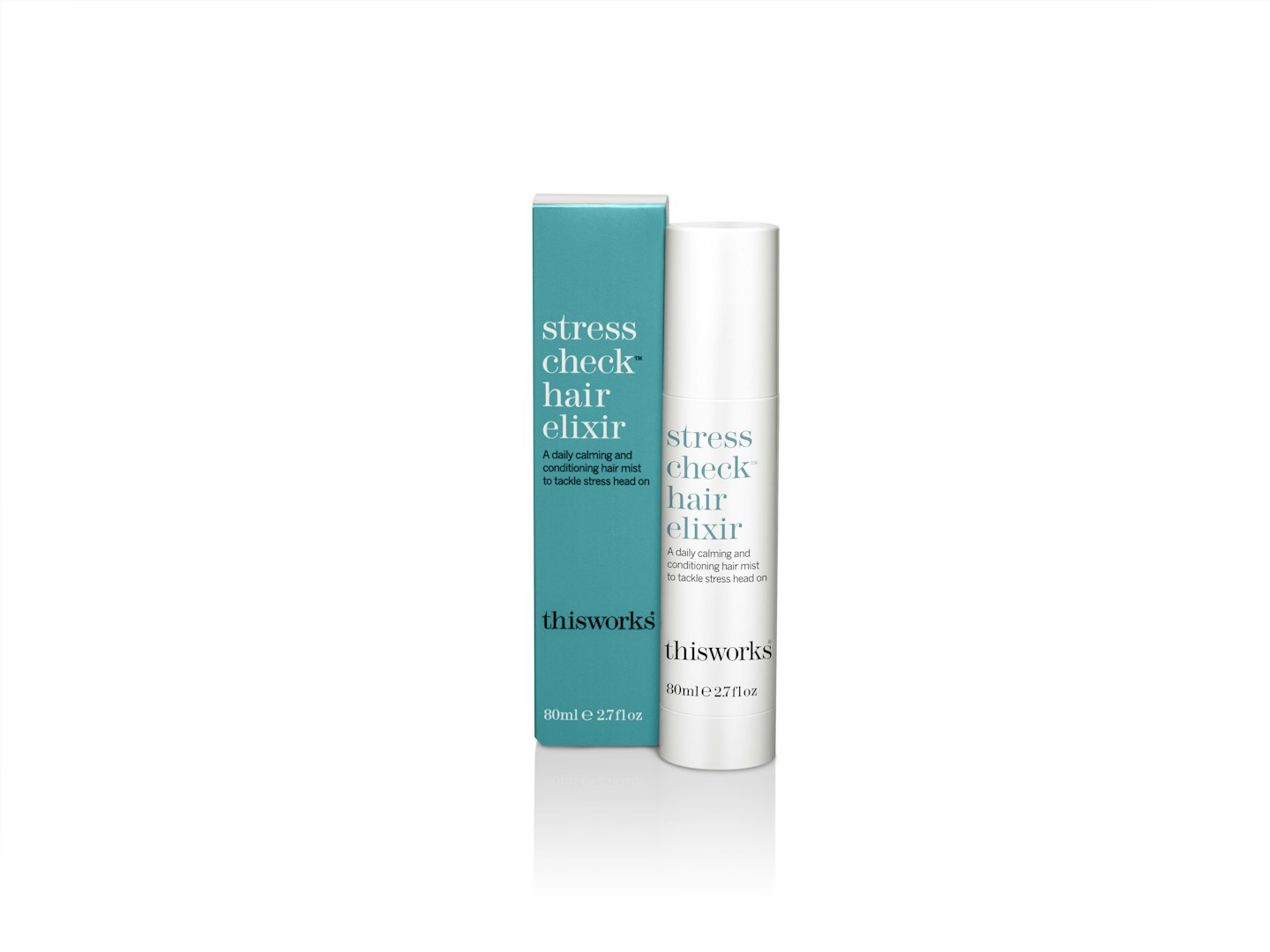 7 of 11
7 of 11This Works Stress Check Hair Elixir, £25
Stresses and anxieties don't just affect our sleeping patterns, they can also wreak havoc on our hair, potentially causing thinning, dullness and the unpleasant onslaught of split ends. Misting your hair with this elixir from We Works not only brings life back to your locks, but saves you those crucial minutes in bed when time-consuming hair treatments just aren't as appealing as your snooze button.
 8 of 11
8 of 11Ho Karan CBD Oil Holy Flow, £27.90 (2.5% CBD) or £49.90 (5% CBD)
Described as 'yoga for the senses', the new holistic Cannabis sativa oil reportedly boosts relaxation. Responding to our body's specific cannabis receptors, this clever product hones in on sleep and appetite regulation, as well as pain and inflammation.
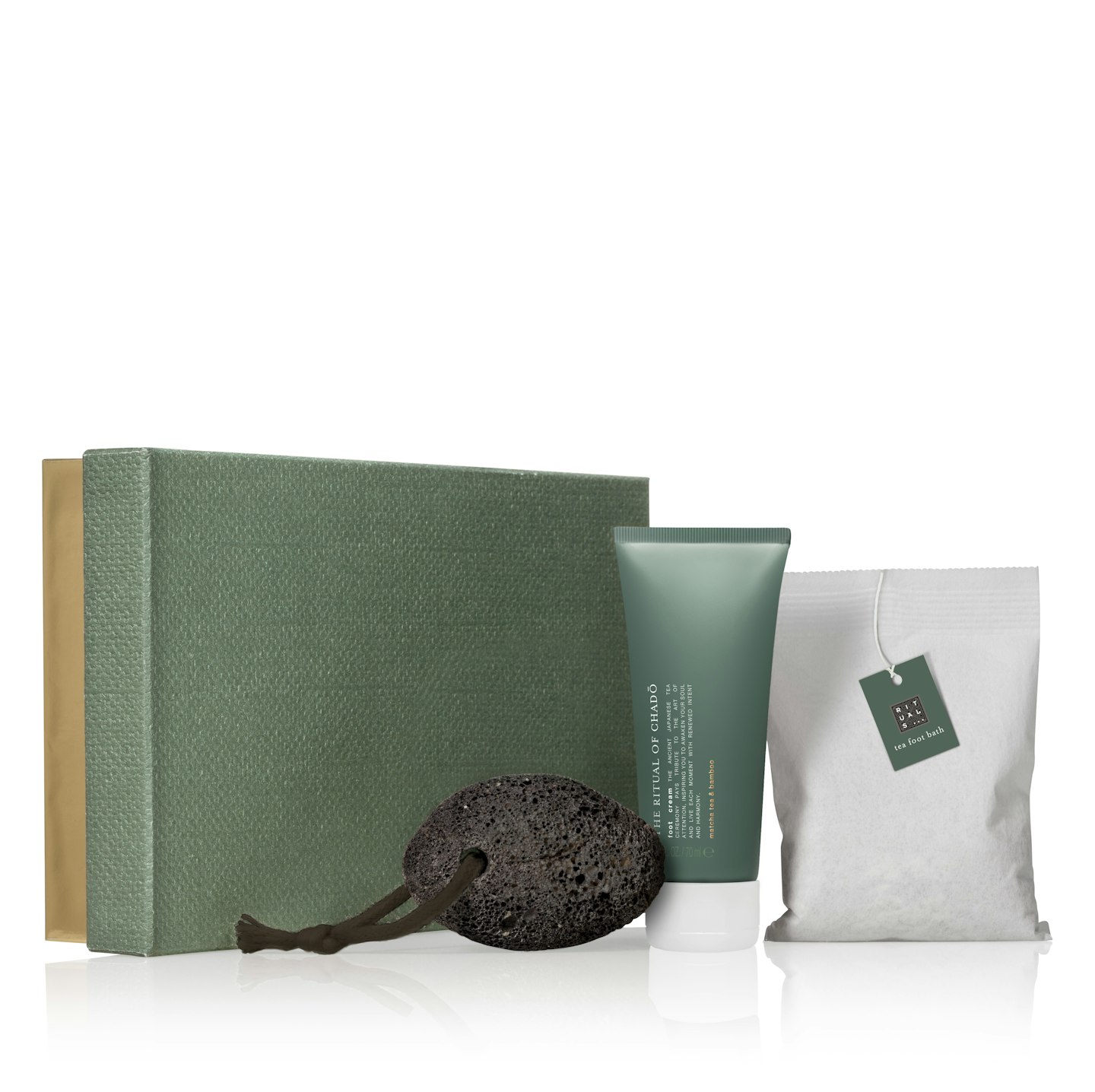 9 of 11
9 of 11Rituals of Chado Foot Set, £19.50
Nothing radiates a calm, zen ambience more than the cherry blossom gardens of Japan. Sourcing inspiration from the Japanese tea traditions, this set focuses on buffing and nourishing tired feet, which often take the strain of a busy lifestyle.
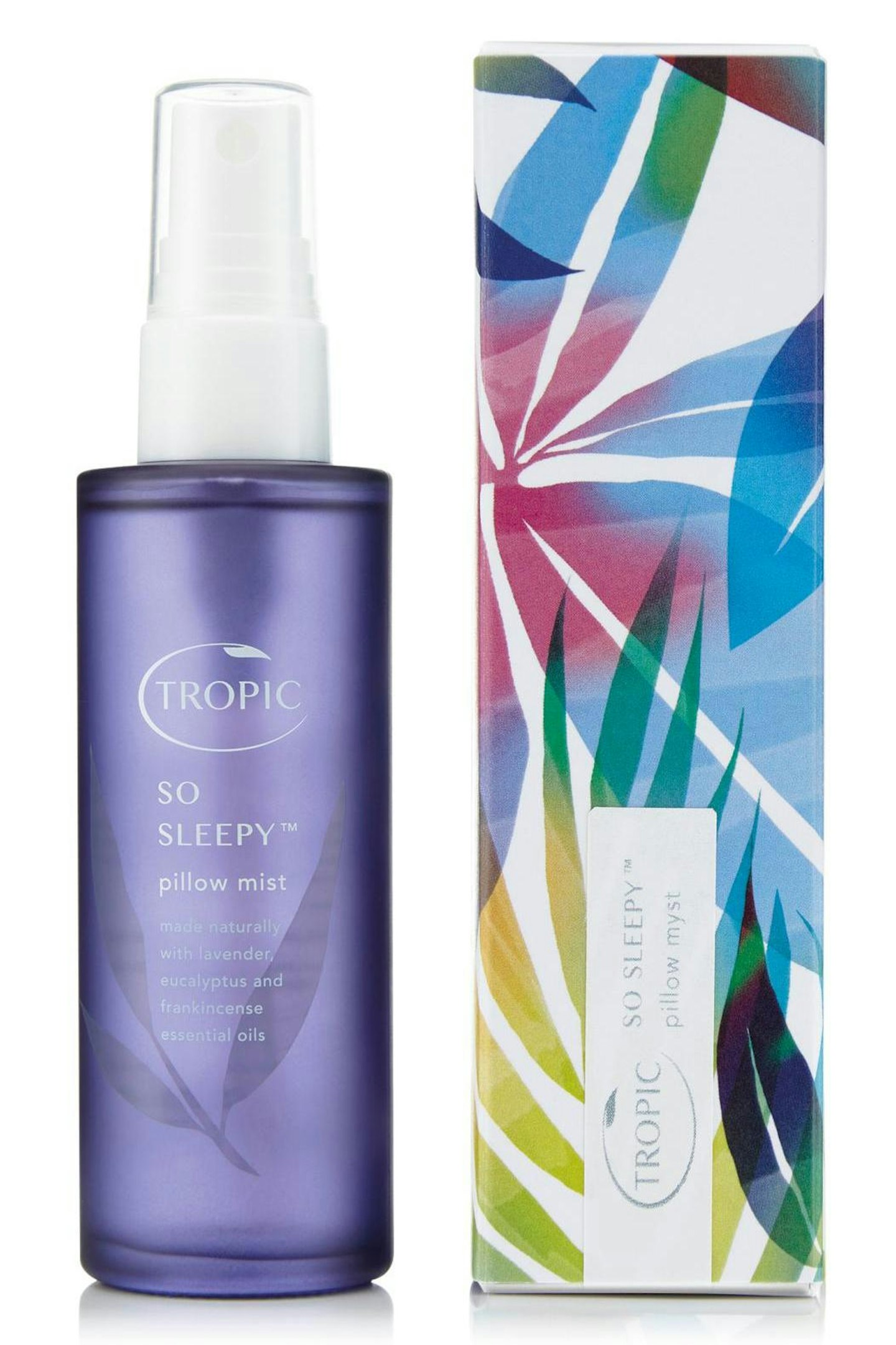 10 of 11
10 of 11Tropic So Sleepy Pillow Mist, £20
If you're struggling to switch off, try spritzing this scent of lavender and rose geranium either directly onto your pillow or just around the room. Hopefully, it will induce a restful night's sleep.
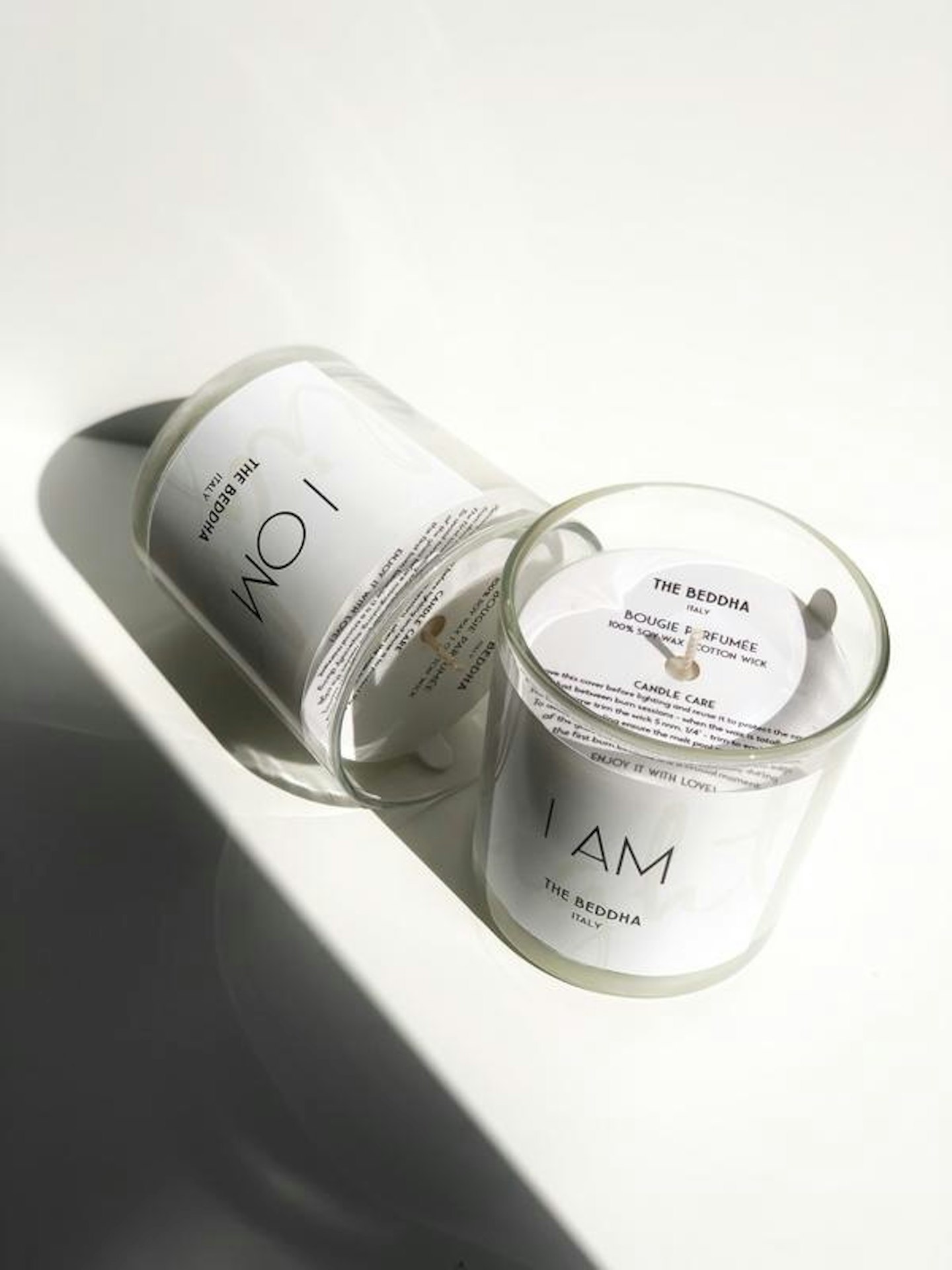 11 of 11
11 of 11The Beddha I AM/O AM Candle Set, £47
Scented candles are a great way to feel slightly more relaxed in an instant. The Beddha, experts in holistic beauty and home-meditation, offer a set of two 100 per cent soy wax candles that send waves of sandalwood and jasmine into any space.
